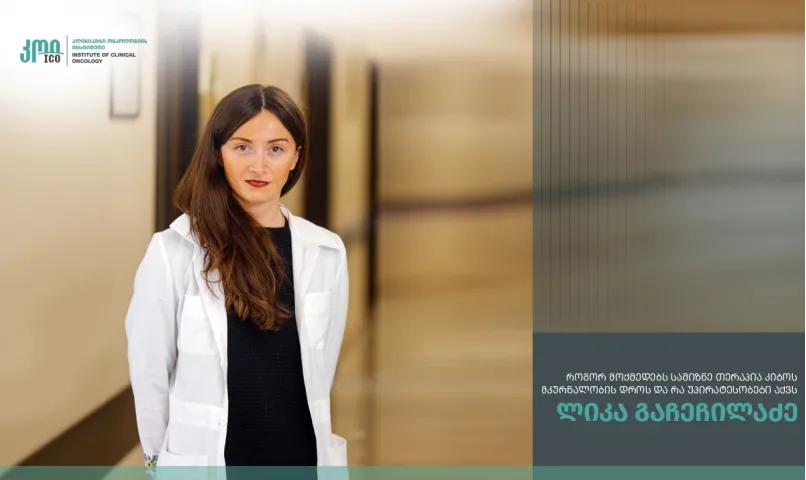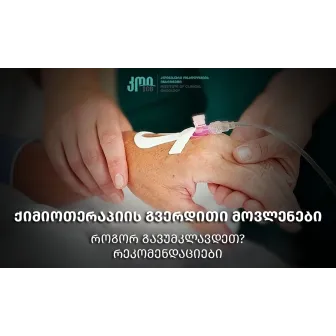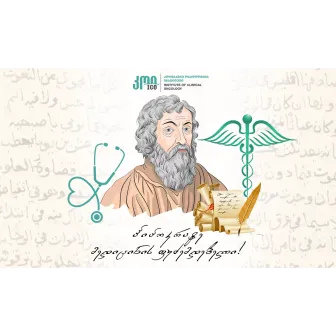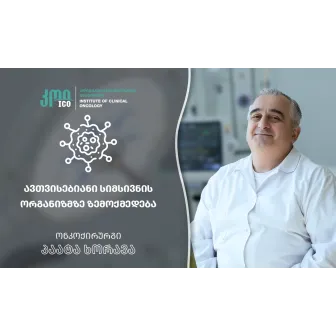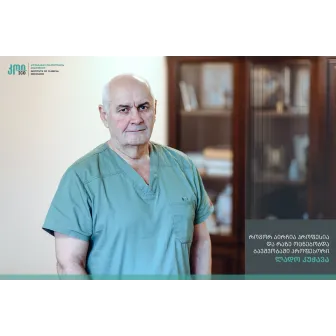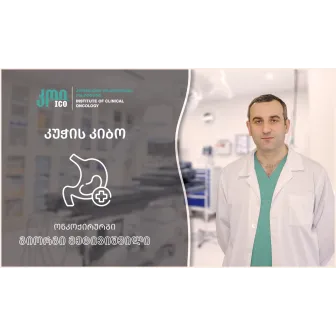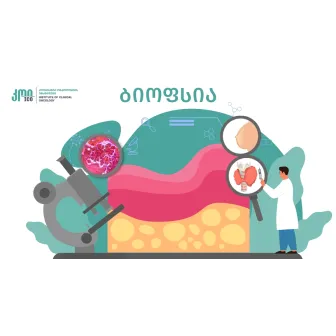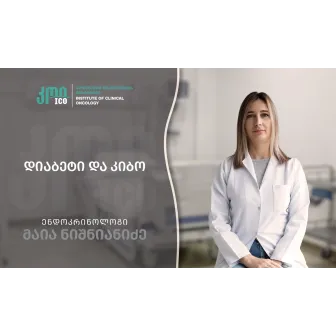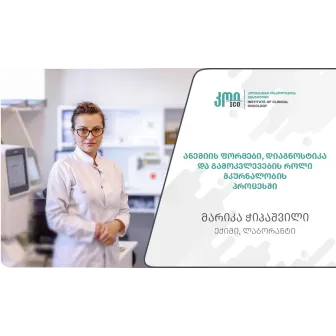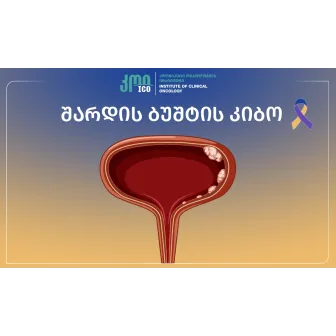Are you interested in how targeted therapy works in cancer treatment? This is the topic, we are discussing with the clinical oncologist of the Institute of Clinical Oncology, Lika Gachechiladze.
What is targeted therapy?
Targeted therapy is one of the most important achievements of modern medicine.
Targeted therapy is a treatment method that precisely targets specific genetic and molecular characteristics of cancer cells. It aims to inhibit tumor growth processes without damaging healthy cells. Before starting treatment, the patient undergoes molecular and genetic analysis.
Targeted therapy focuses on specific biological markers or genetic mutations that are specific to certain forms of cancer. It is used in various nosologies of solid tumors (e.g. breast cancer, lung cancer, gastrointestinal tumors, head and neck tumors, melanoma, etc.)
How does this method work?
- Targeted therapy blocks specific proteins or receptors that are essential for cancer growth.
- Targeted therapy inhibits the proliferation of cancer cells and the development of blood vessels (VEGF inhibitors).
- In certain cases, targeted therapy activates the immune system, to better recognize cancer cells.
What are the main types of targeted therapy used in the treatment of breast cancer?
- HER2-Positive breast cancer
In HER2-positive breast cancer, HER2 (human epidermal growth factor receptor 2) is a protein that is expressed in some cancer cells and helps the cells grow rapidly. Below are listed drugs that often lead to cures for early-stage cancer. In metastatic disease, they dramatically prolong survival and improve quality of life.
• Trastuzumab (Herceptin):
A monoclonal antibody that blocks the HER2 receptor and inhibits cell growth.
Applied for: HER2-positive early and metastatic breast cancer.
• Pertuzumab (Perjeta)
Recombinant humanized IgG1 monoclinal antibody, used in combination with Trastuzumab and chemotherapy in
HER2-Positive early and methastitic cancer.
- Margentuximab (Margenza)
A monoclonal antibody
Applied for metastatc HER2-positive breast cancer.
• T-DM1 (Trastuzumab - emtansine):
An antibody conjugated to an antineoplastic/anti-tumor chemotherapy drug.
Applied for HER2- positive early (adjuvant treatment for residual tumor) and metastatic breast cancer.
- Fam-trastuzumab deruxtecan (Enhertu)
Anti-HER2 antibody and tipoizomerase conjugate.
Applied for metastatic HER2 positive and HER2 low diseases.
• Lapatinib, Tucatinibi, Neratib:
Tyrosine kinase inhibitors that block HER2 signaling. Applied for metastatic HER2-positive cancer. Neratinib is also used in early breast cancer.
2. Hormon-dependent breast cancer:
• In addition to endocrine therapy, additional targeted therapies, such as CDK4/6 inhibitors (Palbociclib, Ribociclib, Abemaciclib), block cell proliferation and are used in hormone receptor-positive metastatic and early cancers.
3. PIK3CA mutation:
• PIK3CA Gene mutation is associated with disruption of cell growth and metabolism.
• Alpesilib: targeted therapy, applied for cases of PIK3CA-mutated cancer
4. BRCA mutations (genetic forms):
• BRCA1 and BRCA2 mutations increase breast cancer risk.
• Para inhibitors (Olaparib, Talazoparib) inhibits the ability of cells to repair DNA, resulting in the death of cancer cells.
Applied for metastatic and early cancers.
5. Thrombotic signal inhibitor (VEGF):
• Bevacizumab: Inhibits the growth of blood vessels around a tumor, thereby limiting the supply of nutrients to cancer cells. Applied for metastatic cancer.
4. What are the advantages of targeted therapy?
- Precise action: Affects only cancer cells, reduces side effects, and causes less damage to healthy cells.
- High efficacy: Effective, especially in cases where the tumor is characterized by specific biological markers.
- Combinated approach: Is often combined with chemotherapy, endocrine therapy, or radiation therapy that enhances the overall outcome
5. What are the side-effects?
Though targeted therapy is less toxic, it still causes certain side effects, such as heart damage (with HER2 therapy) or skin rash (with tyrosine kinase inhibitors), diarrhea, hematological toxicity, and etc.
6. Are there any limitations?
• Affects only those cancers, containing these targets.
• Resistance may develop.
• High cost
Targeted therapy in breast cancer significantly improves the outcomes if the disease has relevant biological and genetic characteristics. Its precise action increases effectiveness and reduces side effects.
- Views:2493




